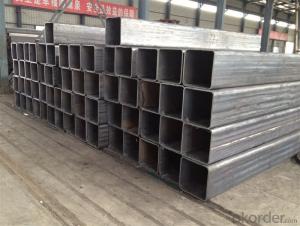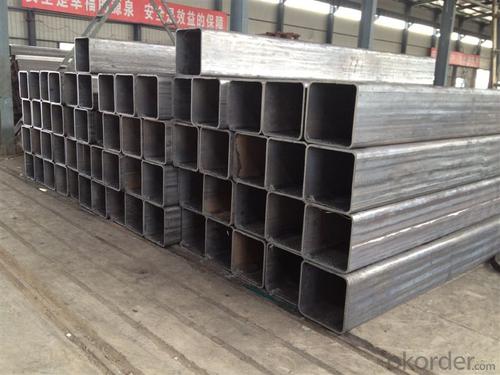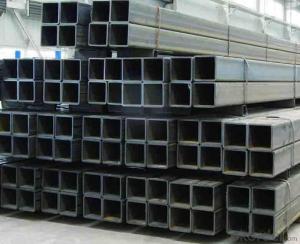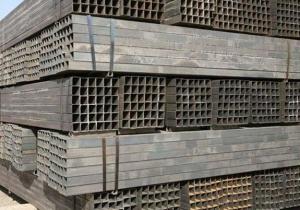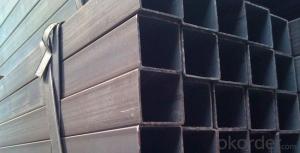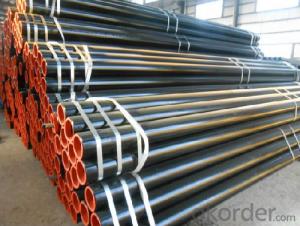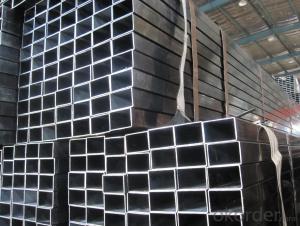ASTM A500/JIS/EN Rectangular hollow section tube
- Loading Port:
- Tianjin
- Payment Terms:
- TT OR LC
- Min Order Qty:
- 10 m.t.
- Supply Capability:
- 5000 m.t./month
OKorder Service Pledge
OKorder Financial Service
You Might Also Like
Product Name | rectangular hollow section/ RHS | |
Size | Size: | 10*10--500*500mm |
Thickness: | 0.45--16mm | |
Length: | 3-12m | |
Steel Grade | Q195,Q215,Q235,Q345,16Mn, 20# | |
Standard | ASTM A500,EN10219,GB/T6728,GB/T6725,JIS G3466 | |
Usage | 1. For Structure, Airport, Railway 2. Construction and so on. | |
Ends | Plain end or By Your Choice | |
Surface | Bared Or With Oiled Or Galvanized | |
Technique | ERW ,Hot Rolled and Cold Rolled | |
Section Shape | Rectangular | |
Inspection | With Hydraulic Testing, Eddy Current , Infrared Test | |
Package | Bags, Bundle, In Bulk, Containers | |
MOQ | 20 Metric Ton / Can Be Negotiated | |
Supply Ability | 15,000 Metric Ton/Month | |
Date of Delivery | 7 days(Qty within 1000 Metric Ton) or According To The Quantity | |
Port of Shipment | Tianjin, China | |
Payment | L/C T/T | |
- Q: Does the seamless steel pipe need rust removal?
- Chemical and electrolytic methods are generally used for pickling treatment. The pipeline corrosion only uses chemical pickling, which can remove oxide, rust and old coating. Sometimes, it can be treated as sand blasting after rust removing. Two. Although chemical cleaning can make the surface reach a certain degree of cleanliness and roughness, but its anchor grain is shallow, and easy to pollute the environment.
- Q: How do steel pipes handle high-pressure applications?
- Steel pipes are able to handle high-pressure applications due to their inherent strength and durability. They have a high tensile strength and are resistant to deformation under extreme pressure. Additionally, the seamless construction of steel pipes ensures that there are no weak points or joints that can compromise their ability to handle high pressures.
- Q: How are steel pipes coated for protection against external elements?
- Steel pipes are coated for protection against external elements through a process called pipeline coating. This involves applying a layer of protective material, such as epoxy or polyethylene, onto the surface of the steel pipes. The coating acts as a barrier, preventing corrosion and damage from external factors like moisture, chemicals, and UV radiation. This protective coating ensures the longevity and durability of the steel pipes, even in harsh environments.
- Q: Are steel pipes suitable for structural purposes?
- Yes, steel pipes are suitable for structural purposes. Steel pipes are known for their strength, durability, and versatility, making them an excellent choice for various structural applications. They can withstand heavy loads, provide excellent structural support, and are resistant to corrosion and extreme weather conditions. Steel pipes are commonly used in construction projects, bridges, buildings, and infrastructure systems such as water and gas pipelines. Additionally, steel pipes can be easily welded, bent, and cut to meet specific structural requirements, making them highly adaptable for different construction needs. Overall, steel pipes are widely recognized as a reliable and efficient choice for structural applications.
- Q: Can steel pipes be used for food processing facilities?
- Yes, steel pipes can be used for food processing facilities. Steel pipes are commonly used in food processing facilities due to their durability, strength, and resistance to corrosion. They are also easy to clean, which is essential in maintaining proper hygiene standards in food processing environments. Additionally, steel pipes can withstand high temperatures and pressure, making them suitable for various food processing applications such as conveying liquids, gases, and solids. However, it is important to ensure that the steel pipes used in food processing facilities are made from materials that are approved for contact with food, and that they are regularly inspected and maintained to prevent any contamination risks.
- Q: What are the different types of pipe coatings used for corrosion protection?
- For corrosion protection, various pipe coatings are utilized to safeguard the exterior surface of pipes, ensuring their durability and integrity. Some commonly employed coatings for this purpose are as follows: 1. Fusion-Bonded Epoxy (FBE) Coatings: Renowned for their remarkable adhesion and resistance to chemicals, moisture, and abrasion, FBE coatings are extensively used. These coatings are applied by heating the pipe and subsequently spraying it with epoxy powder, which solidifies upon cooling, forming a protective layer. 2. Polyethylene (PE) Coatings: PE coatings are highly flexible and exhibit excellent resistance against impact and chemicals. Common application methods for these coatings include extrusion and wrapping, providing exceptional protection against water, soil, and other corrosive substances. 3. Polyurethane (PU) Coatings: PU coatings possess commendable resistance to chemicals, moisture, and mechanical damage. Spraying or brush coating methods are typically employed to apply these coatings, which find frequent usage in underground pipelines. 4. Coal-Tar Enamel Coatings: Coal-tar enamel coatings are suitable for safeguarding pipes exposed to highly corrosive environments like marine conditions or underground settings. Application techniques like hot or cold wrapping are commonly employed, granting exceptional resistance against water, acids, and alkalis. 5. Metallic Coatings: Metallic coatings, including zinc, aluminum, or zinc-aluminum alloys, are frequently adopted as sacrificial coatings to protect the underlying steel pipes. These coatings corrode preferentially, sacrificing themselves to shield the pipe from corrosion. 6. Asphalt Coatings: Asphalt coatings serve as robust barriers against moisture, chemicals, and soil. Typically applied using hot or cold wrapping methods, they are commonly utilized for underground pipelines. To determine the appropriate pipe coating for corrosion protection, it is crucial to consider factors such as the specific environment, temperature, and expected lifespan of the pipes.
- Q: What are the safety precautions for handling steel pipes?
- When handling steel pipes, it is important to take several safety precautions to prevent accidents and minimize the risk of injury. Here are some key safety measures to follow: 1. Personal Protective Equipment (PPE): Always wear appropriate PPE, including safety glasses, hard hats, steel-toed boots, and gloves. This will protect you from potential hazards such as falling objects, sharp edges, or chemical spills. 2. Proper Lifting Techniques: When lifting steel pipes, use proper lifting techniques to avoid strain or back injuries. Bend your knees, keep your back straight, and lift using your legs instead of your back. If the pipe is too heavy, seek assistance or use mechanical lifting equipment. 3. Secure Storage and Stacking: Store steel pipes in a well-organized manner, ensuring they are properly stacked and secured. Use suitable storage methods, such as racks or pallets, to prevent pipes from rolling or falling. Avoid stacking pipes too high to prevent instability. 4. Inspect for Defects: Before handling steel pipes, inspect them for defects such as cracks, corrosion, or dents. Defective pipes can pose serious safety risks, so it is important to identify and remove them from use. 5. Use Appropriate Handling Equipment: When moving or transporting steel pipes, utilize appropriate equipment such as forklifts, cranes, or hoists. Ensure that the equipment is in good working condition, and always follow the manufacturer's guidelines for safe operation. 6. Secure Transportation: If transporting steel pipes by vehicle, make sure they are properly secured to prevent shifting or falling during transit. Use straps, chains, or other restraints to secure the load. 7. Watch for Sharp Edges: Steel pipes can have sharp edges that can cause cuts or injuries. Be cautious when handling them and wear gloves to protect your hands. 8. Communication and Training: Communicate with your team members to ensure everyone understands the proper handling procedures and safety precautions. Provide training on safe lifting techniques, equipment operation, and hazard identification. 9. Maintain a Clean Work Area: Keep the work area clean and free from debris, oil, or other slippery substances that could cause slips or falls. 10. Follow Safety Guidelines: Always adhere to safety guidelines and procedures established by your organization or relevant regulatory authorities. These guidelines may include additional precautions specific to your work environment. By following these safety precautions, you can significantly reduce the risk of accidents and injuries when handling steel pipes. Remember, safety should always be the top priority in any work environment.
- Q: Can steel pipes be used for conveying abrasive slurries?
- Yes, steel pipes can be used for conveying abrasive slurries. Steel pipes are known for their durability and strength, making them suitable for handling abrasive materials. Additionally, their smooth interior surface reduces friction and minimizes the risk of clogs or blockages caused by the abrasive particles present in slurries.
- Q: Can steel pipes be used for underground sewer lines?
- Yes, steel pipes can be used for underground sewer lines. Steel pipes are commonly used in sewer systems due to their strength, durability, and resistance to corrosion. They are able to withstand the weight of soil and other external pressures, making them suitable for underground applications. Additionally, steel pipes have a long lifespan and can effectively transport wastewater and sewage for many years. However, it is important to ensure that the steel pipes are properly coated or lined to prevent corrosion and extend their lifespan even further.
- Q: What are the different types of steel pipe coatings for corrosion protection?
- There are several types of steel pipe coatings used for corrosion protection, including epoxy coatings, polyethylene coatings, zinc coatings, and coal tar coatings. Each coating offers different levels of protection and is chosen based on the specific application and environmental conditions.
Send your message to us
ASTM A500/JIS/EN Rectangular hollow section tube
- Loading Port:
- Tianjin
- Payment Terms:
- TT OR LC
- Min Order Qty:
- 10 m.t.
- Supply Capability:
- 5000 m.t./month
OKorder Service Pledge
OKorder Financial Service
Similar products
Hot products
Hot Searches
Related keywords
